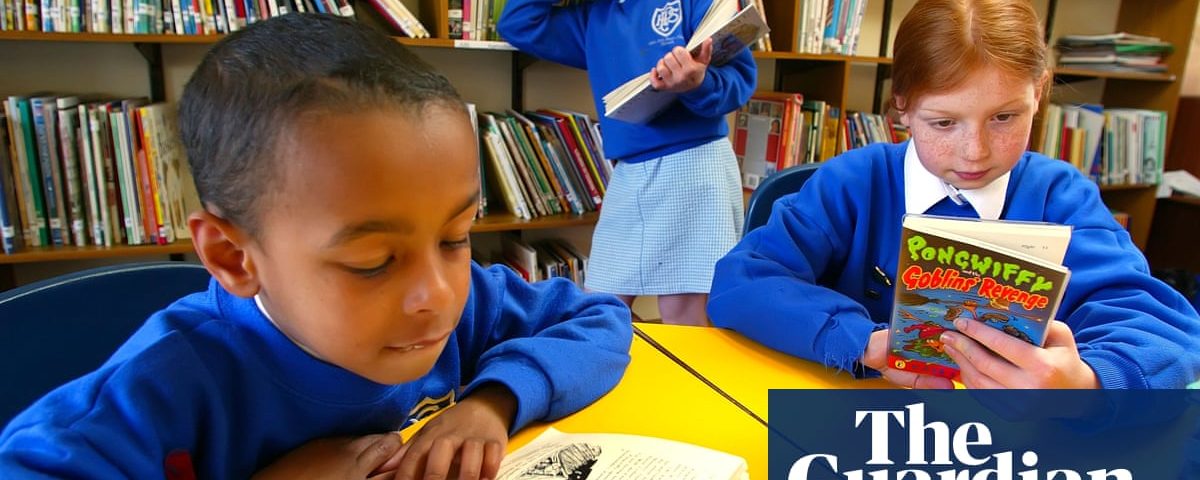Children read longer books of greater difficulty during lockdown periods last year, and reported that reading made them feel better while isolated from the wider world, according to new research.
The annual What Kids Are Reading report from Renaissance Learning, which studies the reading habits of more than one million pupils in the UK and Ireland , found that while the number of books read overall dropped 17% in the year to July 2020, compared with the previous year, children read more during lockdowns and school closures. The data showed that the books read during lockdowns were more challenging, with primary school children and those in year seven reading more demanding texts in particular.
“During the lockdown overall, pupils were tending to read longer books of greater difficulty and with greater comprehension,” said the report’s author, University of Dundee professor Keith Topping. “Having more time to read gave children the chance to immerse themselves in literature. Schools should encourage more reading time now that they are open again.”
The study was published alongside new data from the National Literacy Trust. Analysing responses from more than 58,000 pupils aged nine to 18, the NLT found that 47.8% of children said they enjoyed reading at the beginning of 2020. But, in a second survey of more than 4,000 children in May and June, during the spring lockdown, the NLT found that 55.9% said they enjoyed reading either very much or quite a lot.
“In 2020, we recorded the lowest percentage of self-reported reading enjoyment since 2005, when we began asking the question in our surveys. Ordinarily, this would have led to a call for the sector to rally and help improve this sad state of affairs,” wrote the NLT’s Dr Christina Clark and Irene Picton in the report. “However, shortly after this survey closed came the first wave of school closures in response to the Covid-19 pandemic, and our subsequent survey began to tell a different story: one of increased reading engagement during this first spring lockdown.”
According to the NLT’s survey, three in five children said reading made them feel better during lockdown, while 32% said reading has helped them when they felt sad about not being able to see friends or family.
“Having more time to read and the increased autonomy of book choice, along with the opportunity to read for its own sake, were key reasons why more young people are enjoying being immersed in stories,” said Clark.
‘I’m fine with being called an activist’: Angie Thomas on her The Hate U Give prequel Read more The most popular book for secondary pupils during the year was Rick Riordan’s fantasy adventure novel The House of Hades, the What Kids Are Reading report found, while primary pupils preferred Harry Potter and the Prisoner of Azkaban. Angie Thomas’s The Hate U Give, which tackles police brutality in the US, was the fourth most popular book for secondary school children, entering the list for the first time behind two Riordan novels and Philip Pullman’s The Amber Spyglass.
Thomas welcomed the news. “It’s an honour for my books to be chosen by young people in any capacity, but in light of last summer’s heightened discussions on racism and police brutality, it means an even greater deal to know that young readers turned to my novel for understanding,” said the award-winning US author.
“My biggest hope for The Hate U Give is that it becomes irrelevant; that young people read it at some point and it doesn’t reflect the world we live in; that police brutality no longer exists. For us to reach this world, we must allow young people to read about such topics and we must discuss such issues with them. Through literature, we can grow their empathy, and through their empathy, change can be born.”

